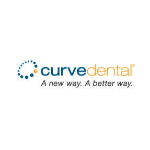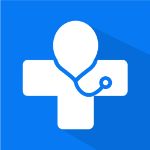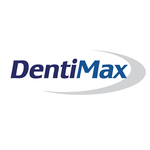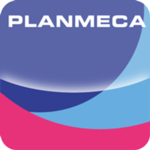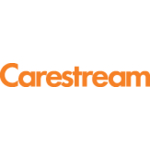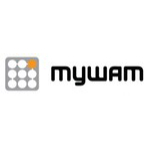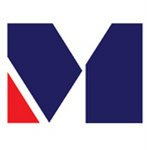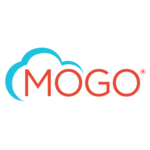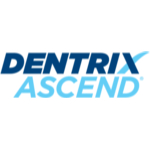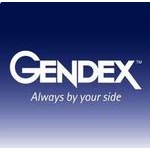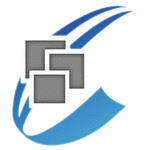TechnologyCounter provides genuine, unbiased real user reviews to help buyers make informed decisions. We may earn a referral fee when you purchase through our links, at no extra cost to you.
List of Best Dental Imaging Software
Showing 1 - 13 of 13 productsCurve Dental offers a modern, user-friendly dental software that streamlines daily tasks and improves overall practice management. With its intuitive design and exceptional functionality, Curve Dental is dedicated to helping dental professionals prov...Read Curve Dental Reviews
Drlogy Dental is a software designed to streamline and elevate your dental practice. With its advanced features and user-friendly interface, Drlogy Dental is changing the game for dental professionals. Say goodbye to outdated systems and hello to a n...Read Drlogy Dental Reviews
DentiMax is a robust and innovative dental practice management software that streamlines daily operations and maximizes efficiency. With user-friendly features technology, DentiMax offers a streamlined solution for all your practices needs. Say goodb...Read DentiMax Reviews
Planmeca Romexis is an advanced and versatile dental software designed to streamline and enhance all aspects of patient treatment and diagnostics. With its user-friendly interface and extensive features, Romexis is a solution for modern dental practi...Read Planmeca Romexis Reviews
3Shape is a world-renowned company that specializes in designing and manufacturing innovative software solutions for the global dental industry. With a focus on revolutionizing the way dental professionals work and provide care to their patients, 3Sh...Read 3Shape Reviews
CARESTREAM RIS is a highly advanced radiology information system designed to improve efficiency and streamline workflow for healthcare providers. With its user-friendly interface features, CARESTREAM RIS is revolutionizing the world of medical imagin...Read CARESTREAM RIS Reviews
Doctor Assist, is a solution for streamlined patient management. With its smart and user-friendly features, Doctor Assist makes managing medical records, appointments, and billing a breeze. Simplify your practice with Doctor Assist, the software desi...Read Doctor Assist Reviews
Mipacs Storage is a storage solution that streamlines data management for businesses of all sizes. With its intuitive interface and robust features, Mipacs Storage offers a seamless is a way to store, access, and protect important data. Say goodbye t...Read Mipacs Storage Reviews
MOGO is a solution for managing all your business operations seamlessly. MOGO offers an intuitive and user-friendly interface that simplifies tasks such as finance management, inventory tracking, and customer relations. Designed to meet the needs of...Read MOGO Reviews
Dentrix Ascend is a software designed specifically for dental practices seeking efficiency and optimization. With its intuitive interface tools, Dentrix Ascend helps streamline daily tasks, increase patient satisfaction, and improve overall practice...Read Dentrix Ascend Reviews
VixWin Platinum is a software designed to streamline professional dental imaging and practice management. With its advanced features and user-friendly interface, VixWin Platinum offers a seamless experience for dentists, making it an essential tool f...Read VixWin Platinum Reviews
Consult-PRO, the solution to all your consulting needs. With its user-friendly interface and powerful features, Consult-PRO streamlines the consulting process, enabling you to efficiently manage projects, collaborate with clients, and track progress...Read Consult-PRO Reviews
DEXIS is a dental imaging software designed to enhance your practice and overall patient experience. Offering dynamic features design, DEXIS streamlines the process of capturing, viewing, and storing digital radiographs. From improved diagnostic abil...Read DEXIS Reviews
Dentrix Ascend is a software designed specifically for dental practices seeking efficiency and optimization. With its intuitive interface tools, Dentrix Ascend helps streamline daily tasks, increase patient satisfaction, and improve overall practice...Read Dentrix Ascend Reviews
Planmeca Romexis is an advanced and versatile dental software designed to streamline and enhance all aspects of patient treatment and diagnostics. With its user-friendly interface and extensive features, Romexis is a solution for modern dental practi...Read Planmeca Romexis Reviews
- What Is Dental Imaging Software?
- Top Reasons Why Businesses Need Dental Imaging Software?
- What Are the Top Key Features of Dental Imaging Software?
- What Are the Top Benefits of Dental Imaging Software?
- What Are the Steps to Choose the Right Dental Imaging Software?
- What Are the Types of Dental Imaging Software for Different Industries?
- What Are the Technology Trends for Best Dental Imaging Software?
- What Are the Deployment Options for Dental Imaging Software?
What Is Dental Imaging Software?
Dental imaging software refers to a specialized computer program that has been developed to aid dentists in managing patient information and facilitating imaging procedures. In a broad sense, this technology offers a straightforward and instinctive method for dentists to preserve and oversee photographs and medical records pertaining to their patients.
This technology enables healthcare professionals to establish diagnoses by analyzing the aforementioned photos and records, while also facilitating the monitoring of their patients' development over a period of time. Best dental imaging software commonly encompasses a diverse range of capabilities.
These functionalities may encompass the capacity to access, modify, and produce patient data, radiographs, dental images, and other visuals pertaining to the field of dentistry. Moreover, it typically encompasses several instruments aimed at facilitating the scheduling of patient appointments, managing insurance billing, documenting patient charts, and devising treatment programs.
Dental imaging software plays a crucial role in the dental profession, facilitating the efficient management and arrangement of patient data and documentation. This technology enables dentists to optimize their time management and enhance diagnostic precision, while also facilitating adherence to the necessary protocols for comprehensive patient care.
Furthermore, it guarantees the secure storage and convenient accessibility of the patient's data for future reference.
Top Reasons Why Businesses Need Dental Imaging Software?
1. One of the key benefits of this technology is its ability to facilitate the effective management and organization of patients' dental photos and clinical data in a digital format.
2. 3d dental imaging software enhances the efficiency of capturing, observing, and organizing many types of visual data, including 3D scans, X-rays, intraoral cameras, and conventional pictures.
3. Enables expedited diagnoses and prompt treatment determinations for both healthcare providers and individuals seeking medical care.
4. The utilization of this technology improves the efficiency of dental procedures and enables precise Three-Dimensional (3D) imaging.
5. One of the benefits of this approach is its ability to enhance communication among team members, hence facilitating and streamlining collaborative efforts.
6. Dental imaging software enables dentists to access and examine data in several formats, including numerical models, 3D images, and sliced planes, facilitating comprehensive analysis.
7. One of the benefits of this technology is its ability to facilitate prompt identification of any anomalies in both soft and hard tissues, hence enhancing the accuracy of dental diagnoses.
8. The utilization of this technology improves patient convenience and safety by facilitating the completion of procedures with minimal discomfort.
9. The software provides comprehensive manipulation features that enhance the visual experience in two-dimensional, three-dimensional, and four-dimensional formats.
10. One of the benefits of easy dental imaging software is that it enables users to obtain information rapidly, hence enhancing the efficiency of treatment planning.
11. The platform offers a secure and HIPAA-compliant environment for the safe sharing of photos.
12. The feature allows for the secure preservation of photos, guaranteeing their protected storage.
13. The instantaneous availability of patient data to dental practitioners enhances the precision of diagnoses.
14. This intervention improves the efficiency of dental procedures such as submittal treatments, examinations, surveillance, and other tasks linked to dental care.
15. Enhances financial performance through the reduction of operating expenses and time expenditure.
What Are the Top Key Features of Dental Imaging Software?
The top key features of dental imaging software include:
1. Image Acquisition: The capacity to efficiently and expeditiously acquire dental pictures using intraoral sensors or analog to digital converters, alongside provision for other imaging modalities such as X-ray, CT, and MRI scans.
2. Image Processing: 3d dental imaging software enables users to modify photographs by making necessary alterations, such as altering contrast, manipulating brightness, and implementing other improvements aimed at enhancing visibility.
3. Image Analysis: Users are able to utilize this technology to quantify angles and distances, as well as conduct comparative analyses, in order to facilitate precise diagnosis and treatment planning.
4. Reporting and Documentation: Dental Imaging Software possesses the capability to arrange and present reports, photographs, and several other types of digital information, so serving as a valuable tool for the management of patients.
5. Cone Beam Computed Tomography (CBCT): Cone Beam Computed Tomography (CBCT) is a three-dimensional imaging modality that affords dentists an enhanced visual perspective of the dental arch and associated structures.
6. Education and Training: Easy dental imaging software facilitates user engagement in a wide range of interactive courses and tutorials, thereby fostering the expansion of their knowledge and skill sets.
7. Integration with Electronic Health Records (EHRs): The utilization of this system facilitates the storage and convenient retrieval of crucial patient information, including medical history and treatment plans.
8. Cloud Back-up: This feature enables users to securely save and backup all photos and documents in an encrypted cloud storage system, thereby protecting the privacy and security of patient information.
What Are the Top Benefits of Dental Imaging Software?
1. Improved accuracy in diagnostics: Dental imaging software offers dentists an improved visual depiction of the patient's oral cavity, enabling more accurate diagnosis of oral ailments.
2. Reduced exposure to radiation: In contrast to conventional X-ray instruments, 3d dental imaging software use digital X-rays, thereby mitigating the level of radiation exposure experienced by the patient.
3. Advanced storage capabilities: Top dental imaging software exhibits the capacity to efficiently and securely store substantial quantities of patient data and photographs.
4. Enhances case sharing: Dental imaging software facilitates the seamless sharing of cases among dental practitioners and other healthcare providers by enabling the uploading of photos and patient data onto a cloud-based platform.
5. Improved patient communication: Best dental imaging software enables dentists to effectively communicate treatment plans and procedures to patients through the utilization of visual aids such as X-ray images, intraoral scans, and other relevant imaging data.
6. Increased efficiency: The faster process of acquiring and analyzing images facilitated by digital imaging software enables dental offices to enhance time management and improve operational effectiveness.
7. Customization and flexibility: The dental imaging software provides dentists with the ability to customize their imaging techniques according to the specific requirements of their practice.
What Are the Steps to Choose the Right Dental Imaging Software?
1) Identify your needs: In order to make an informed decision regarding the selection of dental imaging software for a dental practice, it is crucial to possess a comprehensive understanding of the unique requirements particular to the business.
One should deliberate over the various activities and functions that necessitate implementation within a software system, subsequently assigning priority to each of them.
2) Research available software: After the identification of one's needs, the next step is conducting research on the many software solutions that are now accessible. Examine the features and functionality, pricing, customer support, simplicity of use, security, and user reviews pertaining to each product.
3) Compare features and prices: Upon conducting thorough research, it is advisable to engage in a comprehensive comparison of the features and pricing of the software in order to ascertain the most advantageous and cost-effective option.
4) Assess security: It is imperative to ensure that the selected best dental imaging software possesses robust security measures to safeguard patient data.
5) Ask for a Demo: Request a demonstration of the software in order to conduct a more comprehensive evaluation of its user-friendliness and ascertain its adequacy in terms of possessing all the desired features and functionality.
6) Check customer reviews: Consulting online customer evaluations can provide valuable insights about the user experience pertaining to the utilization of the product.
7) Finalize your decision: Upon careful evaluation of all available alternatives, it is imperative to arrive at a definitive conclusion regarding the selection of the software to be utilized.
What Are the Types of Dental Imaging Software for Different Industries?
The dental imaging software available across many industries exhibits a range of diversity, encompassing rudimentary software designed for conventional radiography applications, as well as sophisticated 3D software tailored to facilitate computer-guided dentistry procedures.
1. Traditional radiography software: Best dental imaging software is specifically developed to acquire, retain, and examine radiographs (X-rays), intraoral pictures, and panoramic X-rays. The utilization of this tool encompasses the areas of diagnosis, therapy monitoring, and oral anatomy research.
2. Intraoral Imaging Software: This particular program is utilized for the purpose of capturing and storing intricate photographs of the dentition and its associated anatomical components. The diagnostic visualizations offered encompass intraoral dental casts, periodontal gauges, and multi-volume scanning systems.
3. Dental Laboratory Software: This particular program has been specifically developed to offer accurate measurements and angles for dental restorations. The utilization of this technology involves the generation of digital representations of a patient's dental structures, including the teeth and associated supportive elements.
This process is employed specifically for the fabrication of restorative dental prostheses such as crowns and bridges.
4. CBCT (Cone Beam Computed Tomography) Imaging Software: Dental imaging software is employed for the purpose of acquiring high-resolution three-dimensional (3D) photographs of teeth and the surrounding anatomical structures, thereby enabling dental practitioners to make accurate diagnoses and plan procedures with a high level of precision.
5. CAD/CAM Systems: This particular program is utilized for the purpose of modifying and generating three-dimensional models of dental scans. The resulting data is subsequently employed by specialized dental facilities to fabricate restorative crowns and bridges.
6. Computer-Guided Dentistry Software: Top dental imaging software is utilized in the digital planning and preparation of diverse dental treatments, including surgeries, implant placements, and orthodontic equipment.
The utilization of this software enables a medical practice to digitally delineate the treatment region and facilitates the formulation of optimal treatment outcomes that are both efficient and accurate.
What Are the Technology Trends for Best Dental Imaging Software?
The current technological advancements in the best dental imaging software can be summarized as follows:
1. Automation: The implementation of automation in dental imaging software enables dentists to carry out several operations on a regular basis, including the uploading of photos, annotation of scans, and generation of reports and documentation, all with minimal user participation.
Additionally, it allows clinicians to optimize their workflow efficiency and productivity.
2. Artificial Intelligence: The integration of artificial intelligence into the best dental imaging software is facilitating enhanced data processing capabilities, characterized by improved speed and accuracy.
Artificial intelligence (AI) is currently being employed in various applications, including facial recognition for the identification of teeth and bones, pathology diagnosis, and the pre-detection of anomalies.
3. Digital 3D Imaging: The utilization of digital three-dimensional (3D) imaging is increasingly prevalent within the domain of dental imaging. Digital 3D imaging offers dentists the opportunity to enhance their assessment and diagnostic capabilities by presenting a comprehensive representation of the patient's teeth, jaw, and other oral structures in a three-dimensional model.
4. Cloud Computing: Cloud computing has emerged as a transformative technology that facilitates the storage and management of dental imaging data in a manner that is characterized by enhanced convenience, efficiency, and reliability.
The utilization of this technology enables healthcare professionals to conveniently retrieve their data from any geographical location, facilitating prompt decision-making and enhancing the provision of effective healthcare services.
5. Mobile Technology: The growing need for mobility has led to the integration of mobile technology into top dental imaging software, thereby establishing its significance in the field. The utilization of mobile applications enables dentists to directly collect intraoral pictures using their devices and promptly communicate them with both colleagues and patients.
What Are the Deployment Options for Dental Imaging Software?
The available deployment options for dental imaging software are contingent upon the program provider.
In a general sense, potential alternatives may encompass:
1. The process of installing the best dental imaging software involves directly transferring the software onto a computer system using either a CD-ROM or a USB device.
2. The process involves the installation of the program onto a singular server, enabling its accessibility over a network.
3. One option is to subscribe to a cloud-hosted version of best dental imaging software, enabling its accessibility and utilization by any machine within the network.
4. The act of installing software into a computer at the time of purchase.
